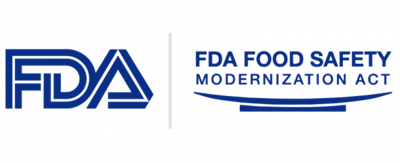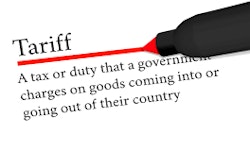
Two consumer groups are suing the Food and Drug Administration (FDA) in an effort to push forward several traceability provisions required under its Food Safety Modernization Act (FSMA), according to a memorandum filed by law firm Hogan Lovells on Oct. 22.
The Center for Food Safety (CFS) and Center for Environmental Health (CEH) are asking the FDA to establish and publish a list of high-risk foods and further enforce additional traceability recordkeeping requirements for facilities that manufacture, process, pack or hold the foods on that list—something the groups say the FDA must do to meet its obligation under FSMA to create a safer food supply chain.
The provisions under scrutiny include a requirement that states no later than 1 year after the law was enacted (i.e., by Jan. 4, 2012), the FDA must designate high-risk foods for which additional recordkeeping requirements are appropriate and necessary to protect the public health. Further, when the FDA finalizes this rulemaking, the agency is required to publish on its website a list of the foods designated as high-risk foods.
While he FDA has not yet designated high-risk foods or issued a proposed rule for facilities that manufacture, process, pack or hold those foods, in February 2014, the agency issued a draft approach to identifying high-risk foods, soliciting comments and scientific data to help the agency refine the draft approach. In the notice, the FDA recognized the statutory deadline for its establishment of a list of high-risk foods, but noted there were a number of topics on which public input would assist in effectively implementing.
According to the complaint, in the time that has elapsed since the statutory deadlines for these requirements, however, numerous foodborne outbreaks have occurred, which “may have been prevented or lessened if these FSMA measures were in place.”
The plaintiffs also argue, as presented in a May 2018 letter to the FDA from a group of consumer groups, that retailers now have the technology (e.g., blockchain) to quickly identify the origin of food, which allows for enhanced traceability back to the source in a short amount of time. According to the plaintiffs, in light of these technological advances, the FDA “can no longer shirk the mandatory actions required of it by Congress to designate high-risk foods and issue a rule for enhanced recordkeeping for those foods.”
The lawsuit was filed in the U.S. District Court for the Northern District of California on Oct. 15. The next step procedurally is for the FDA to respond to the complaint.
CFS and CEH previously sued the FDA in 2012 after the agency did not meet the statutory deadlines for promulgating the seven major FSMA regulations. FDA settled the earlier lawsuit by establishing a schedule of deadlines for completion of the rulemakings and subsequently issued the regulations by the court-ordered deadlines. That lawsuit, however, did not address the statutory deadlines related to FSMA’s traceability provisions, which are at issue in the present lawsuit.



















